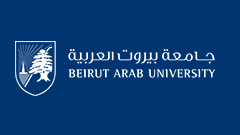Keywords
Knowledge Economy, Economic Growth, Knowledge assessment Methodology (KAM), Sustainable Knowledge Economy Index (SKEI).
Disciplines
Business
Abstract
Despite the mounting importance of the knowledge economy in diversifying Arab economies, the knowledge transition in these countries is still in its early stages, with a long road ahead. The study’s main aim is to examine the role of the knowledge economy in economic growth and to recognize the most influential knowledge pillar for a sample of 11 Arab countries during the period 2000–2020, namely: Algeria, Bahrain, Egypt, Jordan, Kuwait, Lebanon, Morocco, Oman, Qatar, Saudi Arabia, and Tunisia. The panel generalized least squares model, with its two methods (fixed-effects model and random-effects model), was performed using an extended version of Chen and Dehlman’s (2004) empirical framework. The fixed regression findings confirmed the positive and significant role of knowledge in stimulating economic growth. The estimated results of the random regression revealed that knowledge pillars like innovation, information and communication technology, economic and institutional regimes, and the socio-economic sustainability index have a positive and significant impact on Arab economic growth, whereas education has a significant negative relationship with GDP. This can be attributed to poor quality, unequal access, and infrastructure, as well as the COVID-19 pandemic, which has had a negative impact on education. The results also showed that, in comparison to the other four pillars, the socio-economic sustainability index, which was added to the benchmark Knowledge Economy Index, was the most notable pillar that participated in the examined relationship. As a result of these findings, this study contributes to broadening the scope of Arab countries through investing in key knowledge pillars that promote economic growth and where policies should place a greater emphasis on developing education. Furthermore, because of their critical and significant role in exploring the knowledge-growth relationship, sustainability dimensions must be explicitly included in the knowledge framework.
Author ORCID Identifier
https://orcid.org/0000-0002-9484-1913
Recommended Citation
Alaeddine, Soulieka Omar
(2022)
"ROLE OF KNOWLEDGE ECONOMY IN ECONOMIC GROWTH: “AN EMPIRICAL STUDY” ON SELECTED ARAB COUNTRIES,"
BAU Journal - Creative Sustainable Development: Vol. 4:
Iss.
1, Article 2.
DOI: https://doi.org/10.54729/YOCG6260
ISSN
2789-8334

